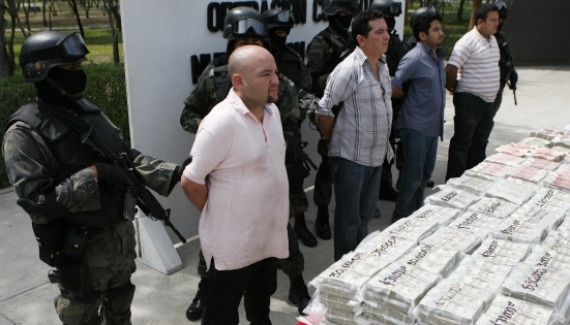Trade-Based Money Laundering in Mexico
More on:

At the Mexican port of Lázaro Cárdenas, containers arrive from China laden with toys and electronics. Some never make it into the hands of customers: they are dumped as worthless merchandise. Their value, instead, lies in a simple bill of sale that allows the buyers - drug trafficking organizations and organized crime syndicates - to launder billions of funds through seemingly legitimate trade.
Drug-related money laundering conjures up images of plastic-wrapped bundles of $20 or $100 bills stashed in car tires and dashboards, or hauled across the U.S.-Mexico border in semi-trailers. It includes tales of storied banks moving billions in sophisticated operations and entangles Western Union and other money transfer companies in the flow of profits south. Some worry that prepaid cards or even “virtual worlds” will be the new avenues for illegally moving billions and billions of dollars.
But trade-based money laundering is likely where the real money is. Less understood and perhaps more pernicious, this includes the stereotypical restaurant that never seems to serve any customers, except for a few toughs at the back table, but “rakes in” profits. But it is much more than that. It can involve jewelry stores, textile factories, travel agencies, or car dealerships. Any type of trade across borders is a potential opportunity for nefarious transactions, buried among the billions of legal ones.
Price mismatches—reporting different values for the same goods – offers a means of concealing the money’s origins. A Mexican front company can send a shipment of computers to the United States, and, by over-invoicing it, can cover both the legitimate cost of the merchandise and the extra laundered funds. In this way, the extra funds are washed clean and enter a U.S. bank account as a formal, legal transaction, skirting the warning flags provided by current financial transparency laws and regulations. The same can happen in the reverse, when drug trafficking organizations want to repatriate their earnings from U.S. street sales. Often they do it through third or even fourth countries, further obscuring the true origins of billions of dollars. Egregious discoveries include Pakistan-made dishtowels imported to the United States for over $150 a piece, and missile and rocket launchers sold for just $50 each, destined for Israel.
Another path is through seemingly normal import/export business transactions. Drug dealers on the U.S. side buy goods (in dollars), ship them to Mexico, where they are sold. The proceeds (now in pesos) are given to their partners. This almost inevitably requires complicit businesses, who can receive a cut worth 3 - 8 percent of the funds passing through the books.
Trade-based money laundering is only likely to increase between the United States and Mexico. New Mexican laws limiting the use of U.S. dollars will push the drug cartels to shift transaction to more “illiquid” assets like goods and real estate. Coming into effect just last fall, already law enforcement agents are seeing the exodus of physical dollars from Mexico. Money changing houses on the U.S. side of the border are beginning to report their inability to keep pesos in stock – another sign that taking dollars straight to Mexico is on the decline.
Trade-based flows are especially worrisome, as they represent quite ingenious and ever changing ways to get money to the bad guys, which then feeds corruption and violence. But even more, trade-based money laundering undermines legitimate business and commerce. With criminal organizations happy to dump imported goods at a discount to get their now “clean” cash, legitimate businesses can’t hope to compete with the “discounts” of twenty, thirty, forty percent often provided. As Mexico (or any other country) struggles to compete in an increasingly globalized world, the last thing it needs is an additional barrier to entrepreneurship, crowding out legal economic activity.
More on:
 Online Store
Online Store